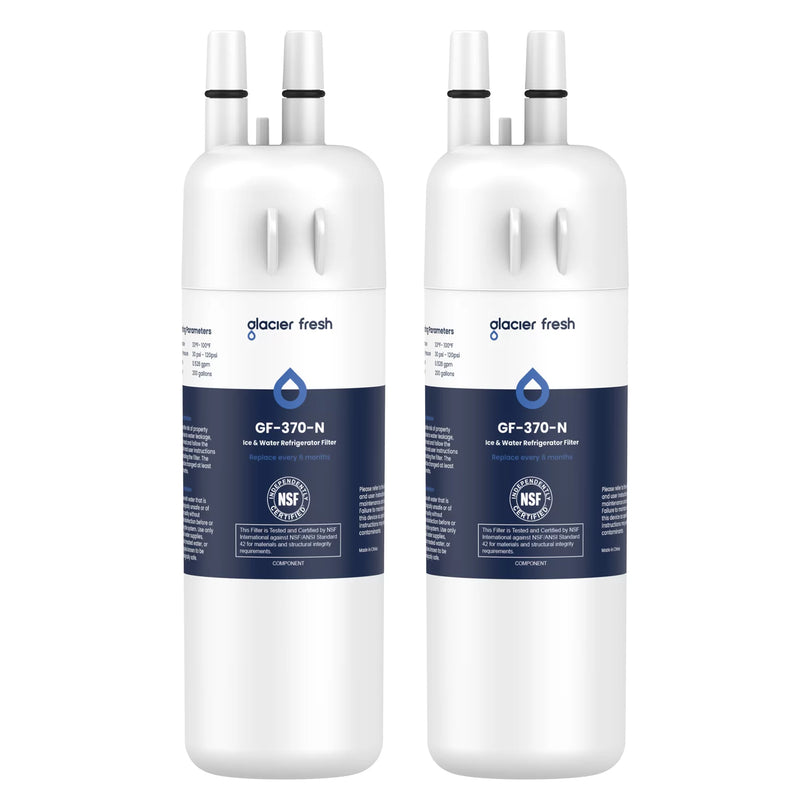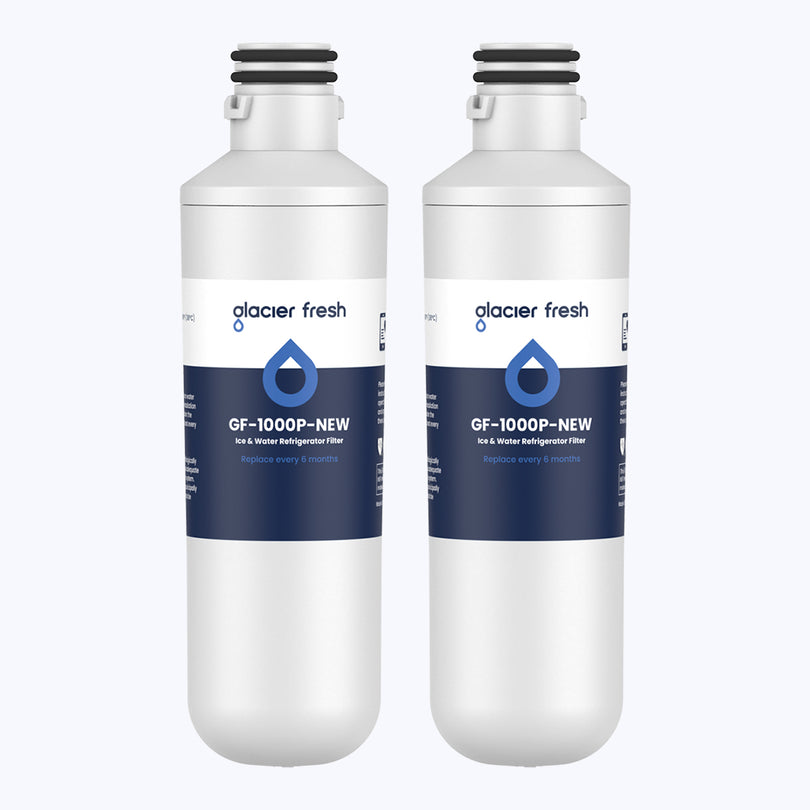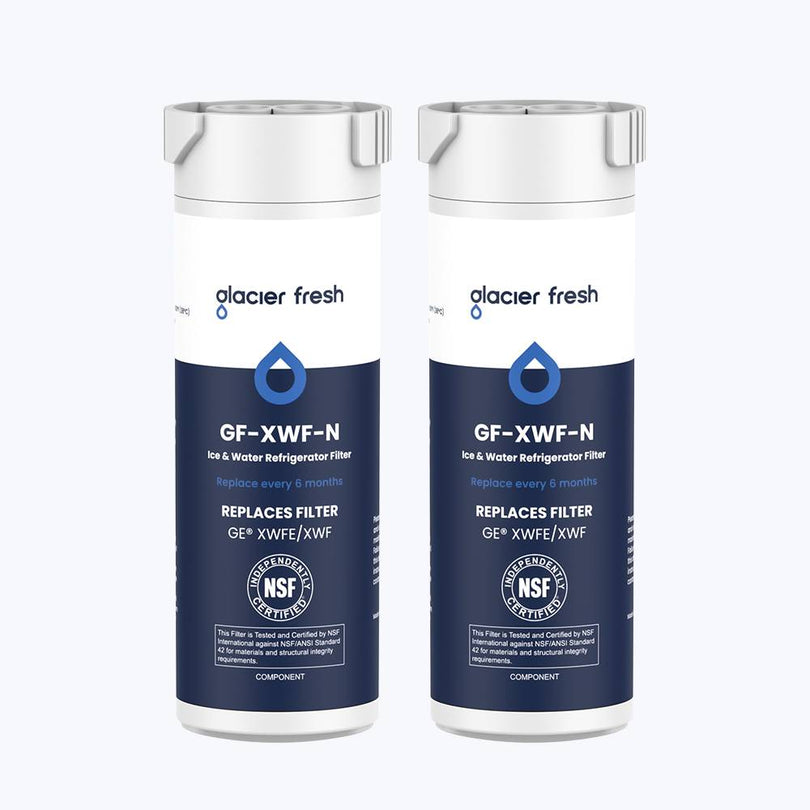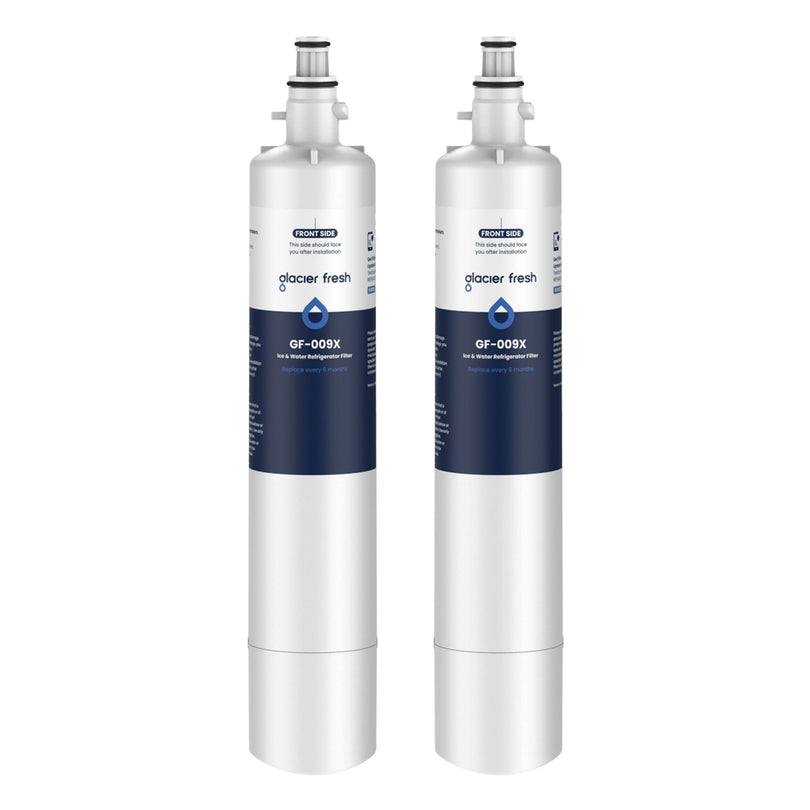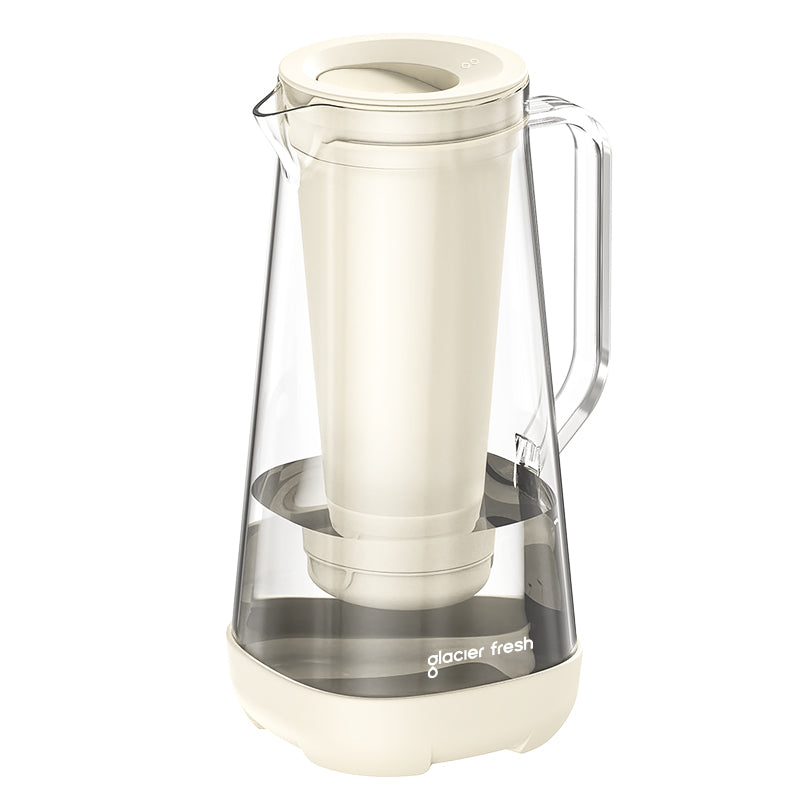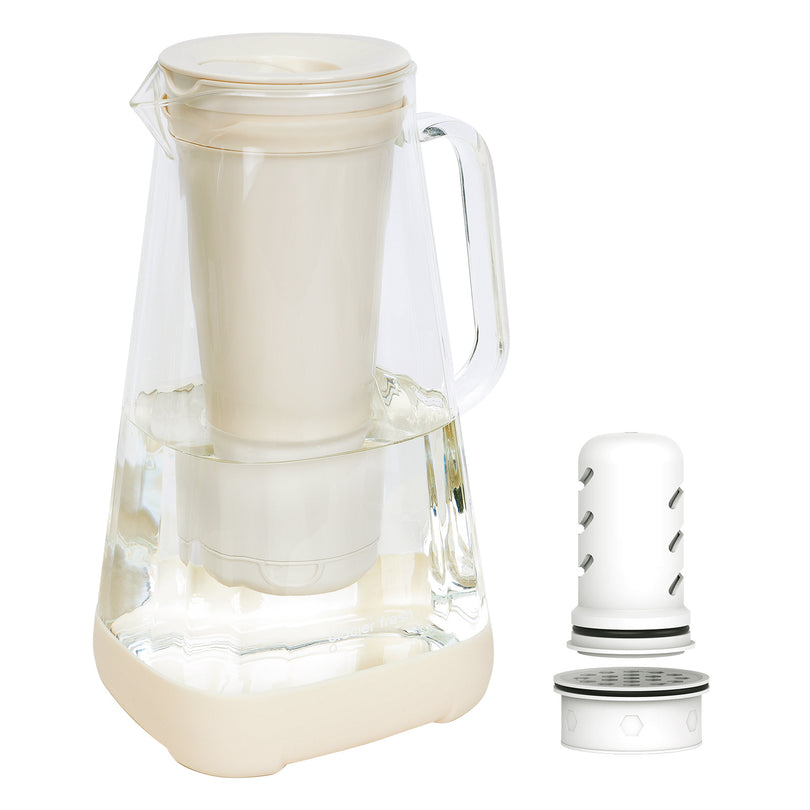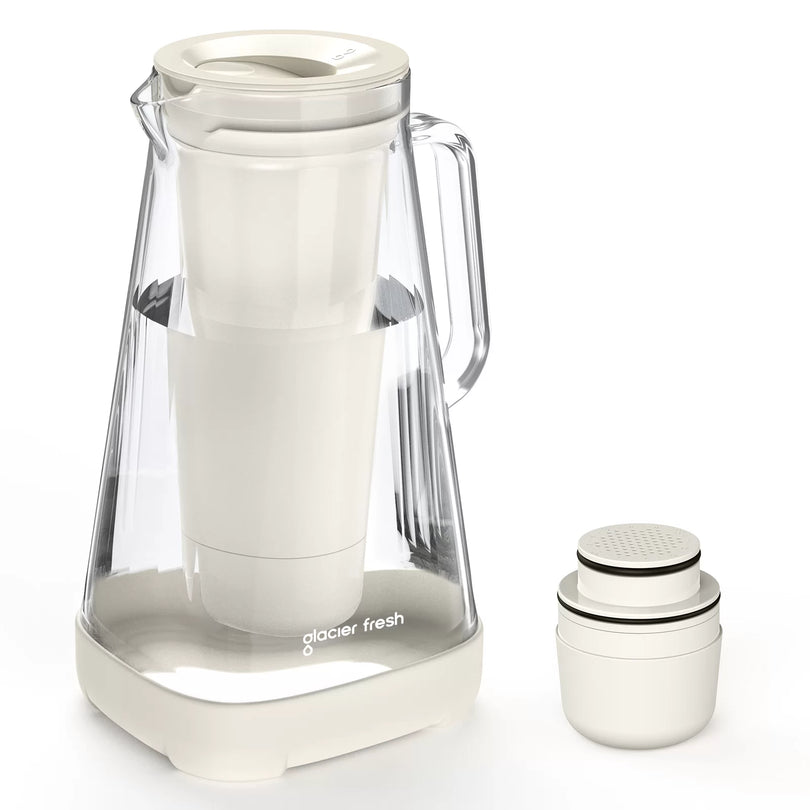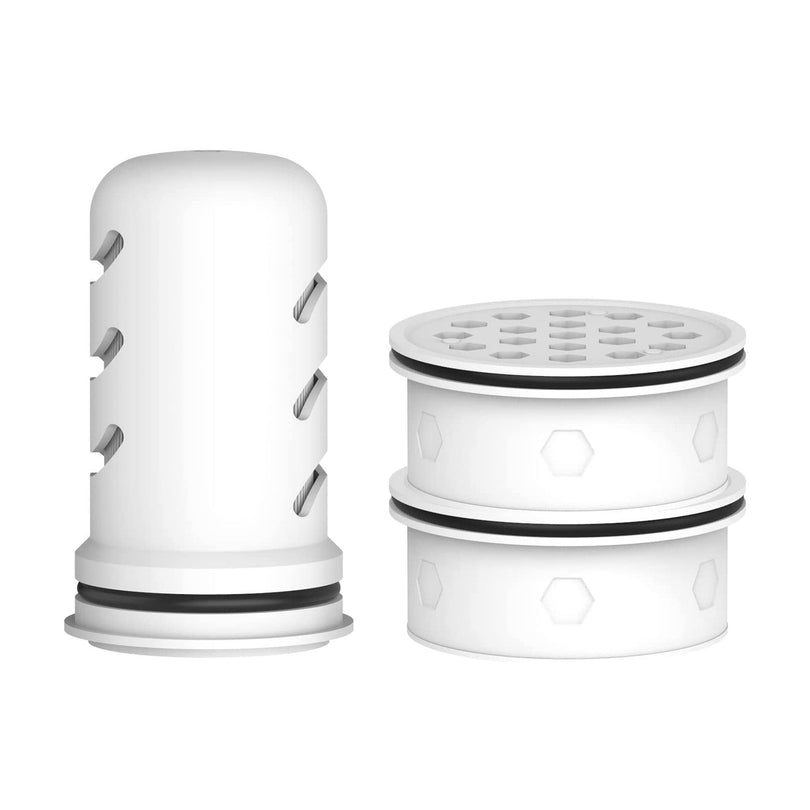Table of Contents:
What Is Vitamin Water?
Is Vitamin Water Healthy?
Pros and Cons of Vitamin Water
Who is Vitamin Water More Suitable for?
Healthier Drink Choices Beyond Vitamin Water
FAQs
Conclusion
Water is essential in supporting general health, which promotes digestion, blood flow, cognitive ability, and energy. A lot of people nowadays demand alternatives to normal water, resorting to the intake of certain products such as vitamin water to gain some additional nutritional benefit.
This post is about breaking down why you would want to consume vitamin water, what it is made of, what the benefits and drawbacks are, and what you should choose if you are looking for some healthier alternatives for hydration.
Let’s dig in.
What Is Vitamin Water?

Vitamin water is merely water that has vitamins and minerals. The vitamin Bs are combined with vitamin C and, in certain brands, mixed with the electrolytes like magnesium, potassium, and sodium. It's usually sweetened with flavors (natural or artificial) to make it more delicious.
Vitamin water is not as good as it may appear to be, despite being promoted as a healthier alternative to soda or juice. Its supposed advantages can occasionally be compromised by the inclusion of the added sugar and artificial products.
Is Vitamin Water Healthy?
From a nutritional standpoint? The response is a yes, depending on that particular product and your general diet.
The Positives
Vitamin water may also be used to give people additional hydration, to those who do not prefer the plain taste of water.
The supplemented vitamins can help people who are lacking in certain nutrients. There are also other beneficial additives, which contain electrolytes that are able to further assist with the hydration of the body following a workout or activity in hot weather.
The Drawbacks
Most vitamin water contains 25 to 30 grams of sugar per bottle; they are merely empty calories, just as evil as the ever-so-infamous soda. This processed sugar is the source of extra calories that lead to weight gain, tooth deterioration, and other long-term metabolism problems.
The sugar is sometimes replaced by what are referred to as artificial sweeteners in zero-sugar versions, which are not always the best things to use. Also, the additional vitamins tend to surpass the daily recommended portions and may not be absorbed optimally like the ones present in whole foods.
Thus, although vitamin water may assist in the process of being hydrated, it cannot be regarded as an alternative to a balanced diet and simple water.
Pros and Cons of Vitamin Water

The pros and cons of vitamin water are given below:
Pros
-
Tastes Better Than Plain Water: To the people who don’t enjoy the tastelessness and saucelessness of plain water, flavored vitamin water may help make the process of staying hydrated less difficult.
-
Added Vitamins and Electrolytes: It can help with post-workout recovery or when sick.
-
Portable and convenient: Can be picked up anywhere, particularly when an individual is in a hurry.
Cons
-
High in Sugar: A good percentage of additives are sweeteners, which aren’t mandatory and contribute to the daily useless calorie intake.
-
Artificial Additives: A few of them include flavorings, colorings, or sweeteners.
-
False Sense of Healthiness: Marketing can cause it to be healthier than it is.
-
Unfriendly and costly: Bottled water elevates plastic pollution and is more expensive than tap or filtered water.
In conclusion, there are more cons than pros, but it’s insignificant under the condition that you are careful or just drink it every so often.
Who is Vitamin Water More Suitable for?
Vitamin water can be appropriate for some groups of people, but not all.
Best suited for:
-
Active people or sportsmen: These people tend to lose electrolytes by sweating a lot.
-
Vitamin-deficient Individuals: The potential medical benefit can’t be ignored.
-
People who don’t like plain water: Some prefer a taste to stimulate drinking.
Use with caution if you:
-
Maintaining weight, having diabetes, or being required to be aware of blood sugar.
-
Are you attempting to cut down on the amount of added sugar or sweeteners you consume?
When you are in these aforementioned groups, then you have better hydration options.
Healthier Drink Choices Beyond Vitamin Water
If you’re questioning, “Is vitamin water good for you?”, the good news is there are several healthier, cleaner options that hydrate effectively without the extra sugar. For those wondering what is the healthiest water to drink, clean, filtered, or purified water is always the top choice.
Filtered Water or Purified Water
The gold standard for daily hydration is either filtered or purified water. Using a reliable water filter ensures the water is sugar-free, free of artificial components, and contains no calories. It’s simply clean, safe water.
GlacierFresh U03 Under-Sink RO System
The GlacierFresh U03 Under-Sink RO System is a high-efficiency reverse osmosis water purifier that is to be installed at home. It carries fresh and clean-tasting water straight out of your tap. Reverse osmosis (RO) water is safe and healthy to drink when properly filtered, making it a reliable choice for maintaining hydration and overall health.
Key Features:
-
800 GPD high-capacity filtration: The purified water is supplied continuously to the entire family.
-
Five-stage RO Filtration system: It's effective in eliminating 99.99 percent of all the contaminants, such as chlorine, heavy metals, and fluoride, as well as sediment.
-
Space-saving under-sink design: It can fit in most kitchens without the large, bulky tanks.
-
Smart filter reminder system: Reminds you to change the filters to continue having high-quality water all the time.
It produces the purest water in the world that can be consumed, used for cooking, or used to prepare coffee.
GlacierFresh RV Reverse Osmosis System
The GlacierFresh RV Reverse Osmosis System is perfect to take everywhere on the road since it's a portable, purified drinking water system.
Key Features:
-
Compact and lightweight: Be it the interiors of an RV or the insides of a tent, it’s built for camping and outdoor adventures. Anytime and anywhere.
-
State-of-the-art RO filtration: Doesn’t matter if it’s microplastics or contaminants, it filters them all, enhancing taste and purity.
-
Quick setup and upkeep: Fits conveniently to normal RV plumbing or any other space.
-
Sturdy construction: Constructed to endure the outdoors and frequent use.
The GlacierFresh systems provide a long-term, environmentally friendly alternative to bottled or vitamin water, and hydrate on demand anywhere you are.
Electrolyte Drinks
Electrolyte beverages are literally manufactured for the replacement of minerals lost during vigorous activities. The three biggies are sodium, potassium, and magnesium. You want to pick ones with as few added sweeteners and natural flavors as possible while still getting the hydration you need.
Homemade Vitamin Drinks
The healthier and more natural way of enjoying flavored hydration is by making your own vitamin drinks. You can prepare them very simply at home with fresh ingredients:
Citrus-Flavored Water: Lemons, limes, and oranges are also sliced and added to the water to give it a dose of vitamin C and a refreshing taste.
Berry Detox Water: Add mint, strawberries, blueberries, or raspberries to it as antioxidants.
Cucumber Mint Water: The water is very effective in quenching thirst and moisturizing the skin.
These beverages contain natural vitamins and minerals, and no sugars or artificial substances are included in them, so they are an outstanding replacement for commercial vitamin waters.
FAQs
How much sugar is in Vitamin Water?
The average bottle of vitamin water has a content of about 27-32 grams of sugar, almost eight teaspoons of sugar. It's similar to a can of soda. The nutrition label is always to be checked.
Does Vitamin Water have electrolytes?
Yes, lots of vitamin water will have some amount of electrolytes like potassium and magnesium. However, they tend to be too small to offset the weight that you lose as a result of doing vigorous exercises.
Can I drink Vitamin Water while pregnant?
It would be better to consult with the doctor. Even though one needs to be hydrated throughout pregnancy, the increased sugar level and unregulated levels of vitamins in these drinks may not be the most appropriate choice. The safer alternatives are pure water or filtered water and prescribed prenatal supplements.
Conclusion
So, is vitamin water good for you? The solution is moderation only. Although it's hydrating and provides additional nutrients, most people might find the amount of sugar in it and the artificially added additives to be more harmful than beneficial.
To have a healthier and more sustainable hydration, you will want pure and filtered water with the GlacierFresh U03 Under-Sink RO System for home use or the GlacierFresh RV Reverse Osmosis System for outdoor activities.
To sum up, vitamin water may appear to be a convenient alternative, but nothing can replace clean and purified water when it comes to the best health. Being hydrated and using pure water will keep your body normal, without additional sugar or calorie intake or advertising.

